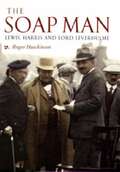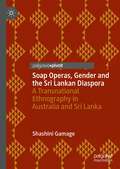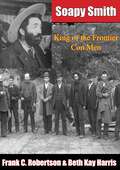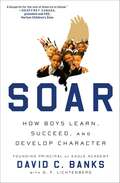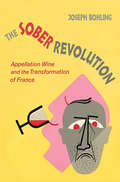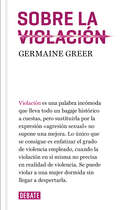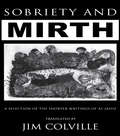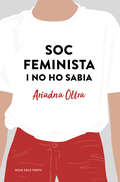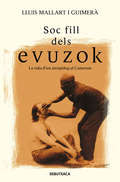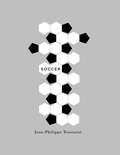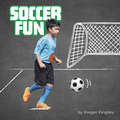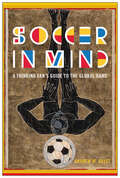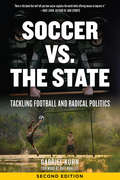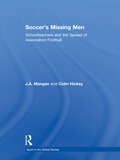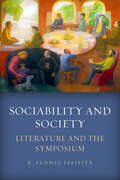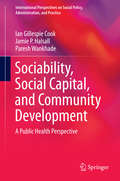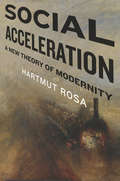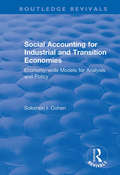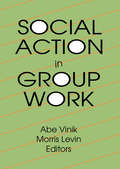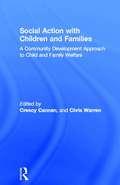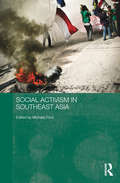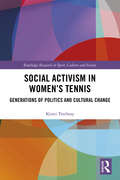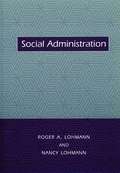- Table View
- List View
The Soap Man: Lewis, Harris and Lord Leverhulme
by Roger HutchinsonThe true story of a tycoon&’s dashed dream: &“A wonderful little book about what happens when righteous ambition meets stubborn culture.&” —Scotland on SundayShortlisted for the Saltire Scottish Book of the Year Award In 1918, as the First World War was drawing to a close, the eminent industrialist Lord Leverhulme, whose name lives on today within the multinational company Unilever, bought—lock, stock and barrel—the Hebridean island of Lewis. His intention was to revolutionize the lives and environments of its thirty thousand people, and those of neighboring Harris, which he shortly added to his estate. For the next five years, a state of conflict reigned in the Hebrides. Island seamen and servicemen returned from the war to discover a new landlord whose declared aim was to uproot their identity as independent crofter/fishermen and turn them into tenured wage-owners. They fought back, and this is the story of that fight. The confrontation resulted in riot and land seizure and imprisonment for the islanders and the ultimate defeat for one of the most powerful men of his day. The Soap Man paints a beguiling portrait of the driven figure of Lord Leverhulme, but also looks for the first time at the infantry of his opposition: the men and women of Lewis and Harris who for long hard years fought the law, their landowner, local business opinion, and the media, to preserve the settled crofting population of their islands. &“Magnificent.&” —West Highland Free Press
Soap Operas, Gender and the Sri Lankan Diaspora: A Transnational Ethnography in Australia and Sri Lanka
by Shashini GamageThis book is a transnational ethnographic study of Sri Lankan women’s television soap opera cultures in Australia and Sri Lanka. Both Sri Lankan migrant women’s soap opera clubs in Melbourne, Australia, and female friendship groups watching soap operas in Colombo, Sri Lanka, are examined. Conducted in the sociopolitical backdrop of post-civil war Sri Lanka, this study examines how nationalist ideologies of womanhood shape meanings in Sri Lankan television soap operas that predominantly cater to female audiences. How women interpret, resist, deconstruct, and reconstruct good-bad binaries of women’s bodies, freedoms, and rights as represented in the soap operas are mapped, providing an ethnographic examination of how nationalist meanings translate into cultural capital in spaces of television production and reception, in national and diasporic everyday lives.
Soapy Smith: King of the Frontier Con Men
by Frank C. Robertson Beth Kay HarrisJefferson Randolph "Soapy" Smith was the slickest article that ever hit the West. He set up his tripod and suitcase on a Denver street corner in the 1880s and started his spiel. The "suckers" flocked around and got thoroughly taken. Everyone listened to Soapy and he began laying down his own brand of law, soon commanding a band of criminal characters whom he protected through his influence with politicians and policewomen on his payroll. He became America's first racketeer, eventually leading the Skagway underworld until a bullet ended his career.
Soar: How Boys Learn, Succeed, and Develop Character
by David Banks G. F. LichtenbergA respected educator, who has advised Hillary Clinton and Cory Booker on scholastic issues, presents a plan for teaching the country's most educationally endangered group--boys.David Banks knows a few things about at-risk boys. In 2004, he petitioned New York City's mayor to allow an all-boys public school to open in one of the most troubled districts in the country, the South Bronx. He had a point to prove: When rituals that boys are innately drawn to are combined with college prep-level instruction and community mentorship, even the most challenging students can succeed. The result? The Eagle Academy for Young Men--the first all-boys public high school in New York City in more than thirty years--has flourished and has been successfully replicated in other boroughs and other states. In Soar, Banks shares the experiences of individual kids from the Eagle Academy as well as his own personal story to help others get similar results. He shares the specific approach he and his team use to drive students, from tapping into their natural competitiveness and peer-sensitivity, to providing rituals that mimic their instinctual need for hierarchy and fraternal camaraderie, to finding teachers who know firsthand the obstacles these students face. Result-oriented and clear-eyed about the challenges and the promises of educating boys at risk, Soar is a book that no one who wants to see our young men flourish--from parents and educators to teachers and employers--can afford to miss.
Soar, Adam, Soar
by Rick Prashaw“Coming out. Coming in. Coming home.” Adam Prashaw’s life was full of surprises from the moment he was born. Assigned female at birth, and with parents who had been expecting a boy, he spent years living as “Rebecca Danielle Adam Prashaw” before coming to terms with being a transgender man. Adam captured hearts with his humour, compassion, and intensity. After a tragic accident cut his life short, he left a legacy of changed lives and a trove of social media posts documenting his life, relationships, transition, and struggles with epilepsy, all with remarkable transparency and directness. In Soar, Adam, Soar, his father, a former priest, retells Adam’s story alongside his son’s own words. From early childhood, through coming out first as a lesbian and then as a man, and his battles with epilepsy and refusal to give in, it chronicles Adam’s drive to define himself, his joyful spirit, and his love of life, which continues to conquer all.
The Sober Revolution: Appellation Wine and the Transformation of France
by Joseph BohlingBurgundy, Bordeaux, Champagne. The names of these and other French regions bring to mind time-honored winemaking practices. Yet the link between wine and place, in French known as terroir, was not a given. In The Sober Revolution, Joseph Bohling inverts our understanding of French wine history by revealing a modern connection between wine and place, one with profound ties to such diverse and sometimes unlikely issues as alcoholism, drunk driving, regional tourism, Algeria’s independence from French rule, and integration into the European Economic Community.In the 1930s, cheap, mass-produced wines from the Languedoc region of southern France and French Algeria dominated French markets. Artisanal wine producers, worried about the impact of these "inferior" products on the reputation of their wines, created a system of regional appellation labeling to reform the industry in their favor by linking quality to the place of origin. At the same time, the loss of Algeria, once the world’s largest wine exporter, forced the industry to rethink wine production. Over several decades, appellation producers were joined by technocrats, public health activists, tourism boosters, and other dynamic economic actors who blamed cheap industrial wine for hindering efforts to modernize France. Today, scholars, food activists, and wine enthusiasts see the appellation system as a counterweight to globalization and industrial food. But, as The Sober Revolution reveals, French efforts to localize wine and integrate into global markets were not antagonistic but instead mutually dependent. The time-honored winemaking practices that we associate with a pastoral vision of traditional France were in fact a strategy deployed by the wine industry to meet the challenges and opportunities of the post-1945 international economy. France’s luxury wine producers were more market savvy than we realize.
Sobre la violación
by Germaine Greer¿Cómo debe abordarse el asunto del consentimiento en las relaciones sexuales? Un breve y radical libro sobre cómo enfocar la cuestión de la violación en la era del #MeToo. A día de hoy, las estadísticas de violación siguen siendo insolubles: una mujer de cada cinco experimentará en algún momento de su vida violencia sexual y muy pocas violaciones encuentran solución en los juzgados. Los asaltos sexuales no disminuyen; las relaciones entre los sexos no mejoran; los litigios fracasan. Para Germaine Greer, una de las representantes del feminismo más importantes del siglo XX, el problema crucial reside en el consentimiento, término de difícil definición. En este libro, Greer argumenta que, tras siglos de diferentes enfoques sobre la violación infligida por hombres a mujeres que no nos han llevado a ninguna parte, debe existir una mejor manera de enfocar el problema. Reseñas: «Interpretaciones históricas aparte, este libro señala el núcleo duro del conjunto de problemas relacionados con la violación: qué es, cómo hablamos sobre ello y, en última instancia, qué podemos hacer exactamente al respecto.»The Guardian «Greer se atreve a pensar lo impensable.»The Independent «No se puede dudar del poder de las brillantes palabras de Greer.»The Times
Sobriety & Mirth
by ColvilleFirst Published in 2001. Routledge is an imprint of Taylor & Francis, an informa company.
Soc feminista i no ho sabia: Reflexions d'una dona que creia que podia fer (quasi) el mateix que un home
by Ariadna OltraArrel del naixement del seu segon fill, la periodista Aridna Oltra es replanteja el paper, els drets i les obligacions de les dones en la societat actual. Si fa tres anys m'haguessin preguntat si era feminista, hauria dit: «No». Jo creia que el feminisme era una cosa pasada, antiga, que ja no calia perquè s'havia aconseguit viure amb igualtat. I arrel de les situacions en les que m'he trobar al ser mare treballadora, ho he deixat de creure i aquesta revelació m'ha donat força i m'ha permès entendre la meva vida i el que m'envolta. Perquè sóc feminista i ho he estat sempre, i no ho sabia.
Soc feminista i no ho sabia: Reflexions d'una dona que creia que podia fer (quasi) el mateix que un home
by Ariadna OltraArrel del naixement del seu segon fill, la periodista Ariadna Oltra es replanteja el paper, els drets i les obligacions de les dones en la societat actual. Si fa tres anys m'haguessin preguntat si era feminista, hauria dit: «No». Jo creia que el feminisme era una cosa passada, antiga, que ja no calia perquè s'havia aconseguit viure amb igualtat. I arrel de les situacions en les quals m'he trobat al ser mare treballadora, ho he deixat de creure i aquesta revelació m'ha donat força i m'ha permès entendre la meva vida i el que m'envolta. Perquè sóc feminista i ho he estat sempre, i no ho sabia.
Soc fill dels Evuzok: La vida d’un antropòleg al Camerun
by Lluís Mallart i GuimeràEl testimoni d’un missioner que va anar al Camerun i va tornar convertit en antropòleg Lluís Mallart va anar com a missioner al Camerun a convertir africans al cristianisme. Però van ser els africans, amb els quals va conviure vuit anys, els qui el van convertir a ell en antropòleg. La relació de Lluís Mallart amb els evuzok va ser tan estreta que el van anomenar "fill dels evuzok". Mallart narra en aquest llibre una experiència extraordinària i explica com són i què fan els evuzok, instal·lats a les clarianes de la selva camerunesa. Viu des de dins els ritus col·lectius, les festes i els problemes dels evuzok com un veí acceptat. Mallart ens transmet l'emoció de descobrir el fons cultural i les formes socials d'un poble que per a nosaltres és exòtic, però en el qual se'ns apareixen proves insospitades de la compartida condició humana. Soc fill dels evuzok és un testimoni que impressiona tant pel rigor de l'observació com pel seu batec humà.
Soccer
by Jean-Philippe ToussaintGrowing up in Belgium, soccer was Jean-Philippe Touissant’s life, a passion not shared by his bookish family. Now an acclaimed novelist, essayist, and filmmaker, he reflects upon his lifelong love for the game with an intellectual’s keen mind and a sports fan’s heart. What, he ponders, has a lifetime of soccer fandom taught him about life and the passage of time itself. Soccer takes readers on an idiosyncratic journey that delves deep into the author’s childhood memories, but also transports us to World Cup matches in Japan, Germany, South Africa, and Brazil. Along the way, it kicks around such provocative questions as: How does soccer fandom both support and transcend nationalism? How are our memories of soccer matches both collective and distinctly personal? And how can a game this beautiful and this ephemeral be adequately captured in words? Part travelogue, part memoir, and part philosophical essay, Soccer is entirely unique, a thrilling departure from the usual clichés of sports writing. Even readers with little knowledge of the game will be enthralled by Touissant’s profound musings and lyrical prose.
Soccer Fun (Sports Fun)
by Imogen KingsleySoccer is a popular sport! Kids can get in on the action by learning the basics about rules, equipment, and the importance of good sportsmanship. Then they can even practice a key skill to have more fun on the pitch.
Soccer in Mind: A Thinking Fan's Guide to the Global Game (Critical Issues in Sport and Society)
by Andrew M. GuestFrom the FIFA World Cup to pick-up games at your local park, soccer is the closest thing in our world to a universal entertainment. Many writers use this global popularity to describe the game’s winners and losers, but what happens when we use social science to explore how soccer intersects with culture, society, and the self? This book provides a thinking fan’s guide to the world’s most popular game, proposing a way of engaging soccer that sparks intellectual curiosity and employs critical consciousness. Using stories and data, along with ideas from sociology, psychology, and across the social sciences, it provides readers with new ways of understanding fanaticism, peak performance, talent development, and more. Drawing on concepts ranging from cognitive bias to globalization, it illuminates meanings of the game for players and fans while investigating impacts on our lives and communities. While it considers soccer cultures across the globe, the book also analyzes what makes U.S. soccer culture special, including its embrace of the women’s game. As a scholar, former minor league player and coach, and fan, Andrew Guest offers a distinctive perspective on soccer in society. Whatever name you call it, and whatever your interest in it, Soccer in Mind will enrich your own view of the one truly global game.
Soccer vs. the State: Tackling Football and Radical Politics, Second Edition
by Gabriel KuhnSoccer has turned into a multi-billion-dollar industry. Professionalism and commercialization dominate its global image. Yet the game retains a rebellious side, maybe more so than any other sport co-opted by money makers and corrupt politicians. From its roots in working-class England to political protests by players and fans, and a current radical soccer underground, the notion of football as the “people’s game” has been kept alive by numerous individuals, teams, and communities. This book not only traces this history, but also reflects on common criticisms: soccer ferments nationalism, serves right-wing powers, and fosters competitiveness. Acknowledging these concerns, alternative perspectives on the game are explored, down to practical examples of egalitarian DIY soccer! Soccer vs. the State serves both as an orientation for the politically conscious football supporter and as an inspiration for those who try to pursue the love of the game away from televisions and big stadiums, bringing it to back alleys and muddy pastures. This second edition has been expanded to cover events of recent years, including the involvement of soccer fans in the Middle Eastern uprisings of 2011–2013, the FIFA scandal of 2015, and the 2017 strike by the Danish women’s team.
Soccer's Missing Men: Schoolteachers and the Spread of Association Football (Sport in the Global Society)
by J.A. Mangan Colm HickeyNow unknown or forgotten, influential schoolmasters took the game of association football to many parts of England. They had several roles: they brought the game to individual schools, they established regional and national leagues and associations, and they founded professional football clubs. They also exported the game around the world, working as moral missionaries, passionate players and energetic entrepreneurs. The role of teachers in association football is a much neglected aspect of English cultural history. It is a story that deserves to be told because it allows a fundamental reappraisal of the status and position of these teachers in late nineteenth century and early twentieth century society.This volume was previously published as a special issue of the journal Soccer and Society.
Sociability and Society: Literature and the Symposium
by K. Ludwig PfeifferToday, churches, political parties, trade unions, and even national sports teams are no guarantee of social solidarity. At a time when these traditional institutions of social cohesion seem increasingly ill-equipped to defend against the disintegration of sociability, K. Ludwig Pfeiffer encourages us to reflect on the cultural and literary history of social gatherings—from the ancient Athenian symposium to its successor forms throughout Western history. From medieval troubadours to Parisian salons and beyond, Pfeiffer conceptualizes the symposium as an institution of sociability with a central societal function. As such he reinforces a programmatic theoretical move in the sociology of Georg Simmel and builds on theories of social interaction and communication characterized by Max Weber, George Herbert Mead, Jürgen Habermas, Niklas Luhmann, and others. To make his argument, Pfeiffer draws on the work of a range of writers, including Dr. Samuel Johnson and Diderot, Virginia Woolf and Marcel Proust, Dorothy Sayers, Joseph Conrad, and Stieg Larsson. Ultimately, Pfeiffer concludes that if modern societies do not find ways of reinstating elements of the Athenian symposium, especially those relating to its ritualized ease, decency and style of interaction, they will have to cope with increasing violence and decreasing social cohesion.
Sociability, Social Capital, and Community Development
by Ian Gillespie Cook Jamie P. Halsall Paresh WankhadeThis book provides a critical understanding of contemporary issues within global society and how these relate to six case study examples (UK, USA, China, India, South Africa, Bangladesh, and Japan). The authors draw on their diverse experience to explore four major themes of contemporary relevance: overall aging of societies; governance and institutions; emergency services and public health provisions; and community activism and involvement. The key issues within the book--sociability, social capital, and community development--are examined in the context of an ever increasing aging world. The authors' sense of optimism is linked to growing evidence that community activism is on the rise and can effectively plug the gap between public need and provision of service.
Social Acceleration: A New Theory of Modernity (New Directions in Critical Theory)
by Hartmut RosaHartmut Rosa advances an account of the temporal structure of society from the perspective of critical theory. He identifies three categories of change in the tempo of modern social life: technological acceleration, evident in transportation, communication, and production; the acceleration of social change, reflected in cultural knowledge, social institutions, and personal relationships; and acceleration in the pace of life, which happens despite the expectation that technological change should increase an individual's free time.According to Rosa, both the structural and cultural aspects of our institutions and practices are marked by the "shrinking of the present," a decreasing time period during which expectations based on past experience reliably match the future. When this phenomenon combines with technological acceleration and the increasing pace of life, time seems to flow ever faster, making our relationships to each other and the world fluid and problematic. It is as if we are standing on "slipping slopes," a steep social terrain that is itself in motion and in turn demands faster lives and technology. As Rosa deftly shows, this self-reinforcing feedback loop fundamentally determines the character of modern life.
Social Accounting for Industrial and Transition Economies (Routledge Revivals)
by Solomon CohenThis title was first published in 2002: Showing how the social accounting matrix provides a comprehensive framework for the analysis and tabulation of national statistics and how it can assist in developing economic policy, this work also demonstrates the key aspects of this approach in dealing with a wide range of economic and social issues. The reference, and the accompanying volume, "Social Accounting and Economic Modelling for Developing Countries" should be useful for researchers, instructors, policy makers and scholars.
Social Action in Group Work
by Abe Vinik Morris LevinOne of the most effective ways of dealing with social problems is getting rid of the cause of the problem, not just finding a remedy for the result. Social Action in Group Work provides a useful overview of the history, philosophy, theory, and practice of social group work and action in the promotion of societal change. It shows practitioners how to use their skills effectively to achieve social change. This helpful book incorporates ideas developed in social movements, identifies their contributions to social group work practice, and illustrates effective practice in case experience with specific examples. It provides a much-needed understanding of the need for and process of social action, along with new ideas for theory building, teaching, and practice in group work. Numerous case examples from a variety of different settings become models that will be extremely useful for social work students, educators, professionals, and those who work directly with groups.This invigorating book is divided into three sections, each with a unique focus, and tied together by overlapping concepts, theories, and models. The first section, Ideas of Social Action, examines the history of social action in group work and proposes an integrated global framework for social work organization, education and practice. Advocacy and Empowerment, the middle section, is replete with case examples. The third section, Principles and Practice, explores the application of social group work in a variety of situations, including inter-ethnic conflict and a group of homeless men and women. Together, the sections make a strong stand for a more sensitive, empowerment oriented practice and for more advocacy by the worker and group. Everyone involved or interested in the process of social change through social action with groups will find Social Action in Group Work a wealth of practical information.
Social Action with Children and Families: A Community Development Approach to Child and Family Welfare
by Crescy Cannan Chris WarrenMeeting the needs of children at the same time as promoting family life is more than a question of resources: it needs a culture change in social services: a rediscovery and a modernization of the social action and community development traditions in social work. In Social Action with Children and Families the authors argue that ways must be found to work together to promote environments in which children can flourish, and to develop forms of public life which are friendly to children and their parents. Recent changes in child care systems have put more pressures on those working in it. Social workers have become more open to public scrutiny and are expected to respond to problems rooted in social and economic aspects of their clients' or services users' lives. Legislation stresses working in partnership with parents, other professionals, and community groups. The central aim of Social Action with Children and Families is to help those working in this field to find a new, more positive sense of direction and purpose. It will be invaluable reading to those studying social work, social policy and public administration as well as to all professionals working in these areas.
Social Activism in Southeast Asia (Routledge Contemporary Southeast Asia Series)
by Michele FordSocial Activism in Southeast Asia examines the ways in which social movements operate in a region characterized by a history of authoritarian regimes and relatively weak civil society. It situates cutting-edge accounts of activism around civil and political rights, globalization, peace, the environment, migrant and factory labour, the rights of middle- and working-class women, and sexual identity in an overarching framework of analysis that forefronts the importance of human rights and the state as a focus for social activism. Drawing on contemporary evidence from Cambodia, Indonesia, Malaysia, Myanmar, the Philippines, Singapore, Thailand and Timor-Leste, the book explores the ways in which social movement actors engage with their international allies, the community and the state in order to promote social change. As well as providing detailed and nuanced analyses of particular movements in specific areas of Southeast Asia, the book addresses difficult questions about the politics, strategies and authenticity of social movements.
Social Activism in Women’s Tennis: Generations of Politics and Cultural Change (Routledge Research in Sport, Culture and Society)
by Kristi TredwayAnalyzing the key players and political moments in women’s professional tennis since 1968, this book explores the historical lineage of social activism within women’s tennis and the issues, expressions, risks and effects associated with each cohort of players. Drawing on original qualitative research, including interviews with former players, the book examines tennis’s position in debates around gender, sexuality, race and equal pay. It looks at how the actions and choices of the pioneering activist players were simultaneously shaped by, and had a part in shaping, larger social movements committed to challenging the status quo and working towards increased economic equality for women. Taking an intersectional approach, the book assesses the significance of players from Althea Gibson and Martina Navratilova to Venus and Serena Williams, illuminating our understanding of the relationship between sport, social justice and wider society. This is important reading for researchers and students working in sport studies, sociology, women’s studies, and political science, as well as anybody with an interest in social activism and social movements. It is also a fascinating read for the general tennis fan.
Social Administration (Foundations of Social Work Knowledge Series)
by Roger Lohmann Nancy LohmannBy making explicit linkages both to social work practice and to the history of management thought, covering the rapidly expanding field of nonprofit studies, and incorporating management approaches from Henri Fayol's principles to Total Quality Management, this pioneering work grounds the practice of social administration in the profession of social work and agency-based practice better than any text presently available. The book also addresses ways in which the strategic vision of social administrators can be used to build humane and lasting welfare institutions, further social justice, and confront oppression.To accomplish this task, the authors blend several perspectives: social administration as management, as a form of social work practice emphasizing professional and community leadership, as decision making influenced by values and ethics and as institution building. Divided into an introduction, an afterword, and twenty-five topical chapters, Social Administration discusses issues of executive and program leadership as well as such environmental concerns as community, social agency, and a range of special topics, including accountability, ethics, contracting, and working with boards.
